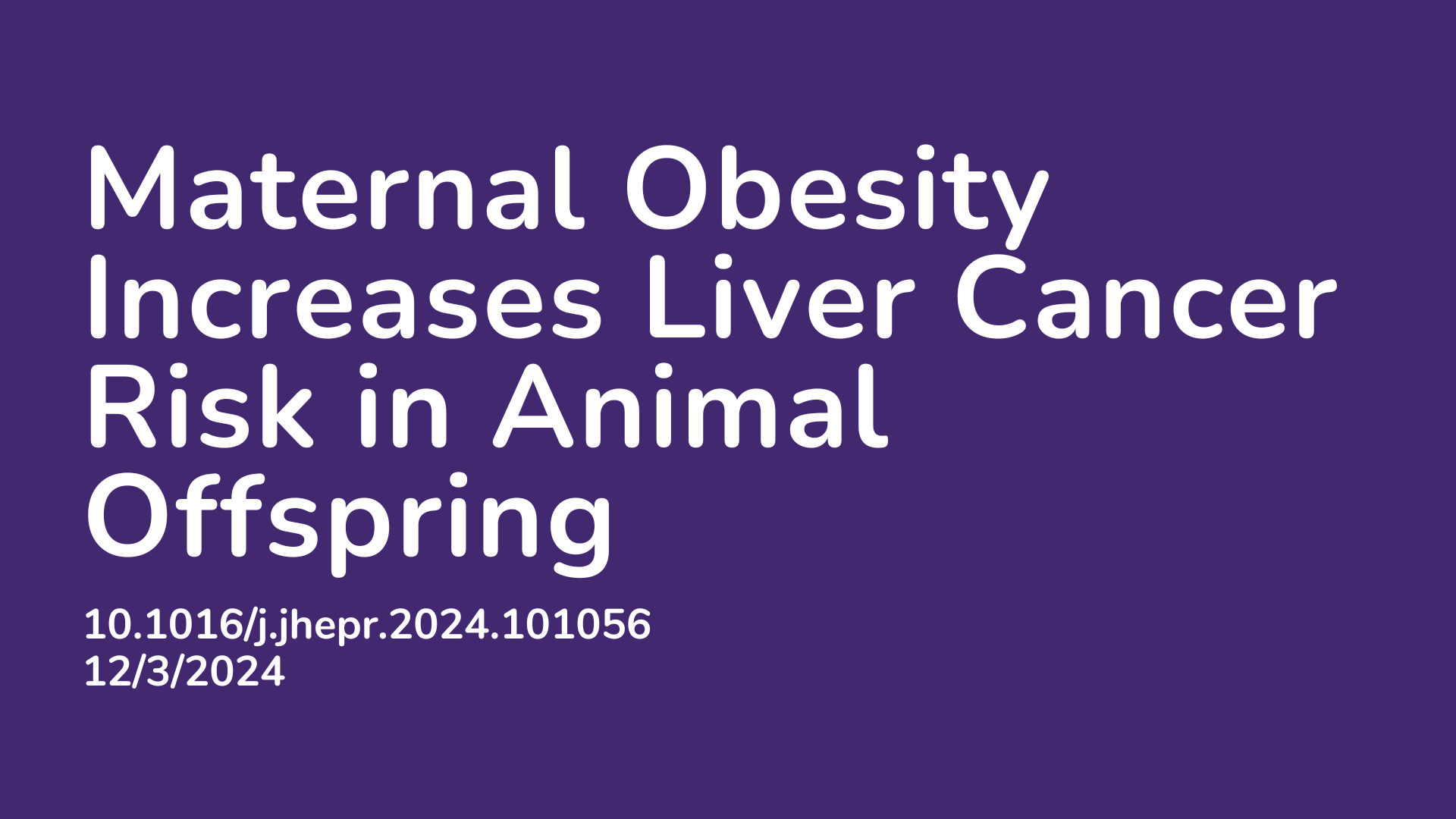Summary:
The rising rates of obesity, particularly among women of reproductive age, is a significant public health concern due to its association with chronic liver diseases. Maternal obesity not only impacts the health of mothers but also affects the long-term health of their offspring, increasing the risk of metabolic diseases, obesity, and impaired neuro-cognitive development. Human and animal studies have shown that maternal obesity promotes metabolic-associated steatotic liver disease (MASLD) and inflammatory liver changes in offspring. Obesity-induced changes in the gut microbiome may also play a role in transmitting cancer risk from mother to offspring. This study aimed to investigate the impact of maternal obesity on liver cancer risk in mice offspring and elucidate underlying mechanisms, focusing on the gut microbiome, which might be transferable to humans. Female mice were divided into two groups: one fed a high-fat diet (HFD) and the other a normal diet (ND). All offspring were fed a normal diet after weaning. Liver histology and tumor load were examined. The results showed that maternal obesity caused a notable change in gut microbial composition and a greater proportion of female HFD offspring developed liver tumors. Offspring of HFD mothers exhibited a less diverse microbiota compared to ND offspring. The authors concluded that maternal obesity heightens the risk of liver cancer development in female mice offspring and that the altered gut microbiome significantly contributes to this increased susceptibility.
Background & Aims: Emerging evidence suggests that maternal obesity negatively impacts the health of offspring. Additionally, obesity is a risk factor for hepatocellular carcinoma (HCC). Our study aims to investigate the impact of maternal obesity on the risk for HCC development in offspring and elucidate the underlying transmission mechanisms.
Methods: Female mice were fed either a high-fat diet (HFD) or a normal diet (ND). All offspring received a ND after weaning. We studied liver histology and tumor load in a N-diethylnitrosamine (DEN) induced HCC mouse model.
Results: Maternal obesity induced a distinguishable shift in gut microbial composition. At 40 weeks female offspring of HFD mothers developed steatosis (9.43 vs 3.09%, p=0.0023), fibrosis (3.75 vs 2.70%, p=0.039), an increased number of inflammatory infiltrates (4.8 vs 1.0, p=0.018) and a higher expression of genes involved in fibrosis and inflammation compared to ND offspring. A higher proportion of female HFD offspring developed liver tumors after DEN induction (79.8 vs 37.5%, p=0.0084) with a higher mean tumor volume (234 vs 3 μm3, p=0.0041). Offspring of HFD mothers had a significantly less diverse microbiota than ND offspring (Shannon Index 2.56 vs. 2.92, p=0.0089), which was rescued through co-housing. In the principal component analysis, the microbiota profile of co-housed animals clustered together, regardless of maternal diet. Co-housing of HFD offspring with ND offspring normalized their tumor load.
Conclusions: Maternal obesity increases the susceptibility to develop HCC in female offspring. The transmission of an altered gut microbiome plays an important role in this increased predisposition.
Article Publication Date: 12/3/2024
DOI: 10.1016/j.jhepr.2024.101056



